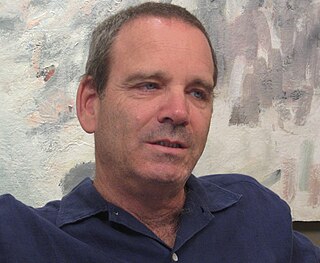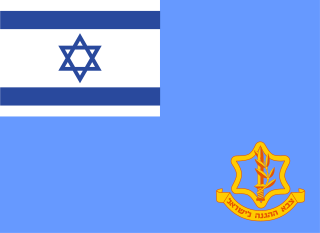Related Research Articles

The First Intifada, also known as the First Palestinian Intifada or the Stone Intifada, was a sustained series of protests, acts of civil disobedience and riots carried out by Palestinians in the Israeli-occupied Palestinian territories and Israel. It was motivated by collective Palestinian frustration over Israel's military occupation of the West Bank and the Gaza Strip, as it approached a twenty-year mark, having begun in the wake of the 1967 Arab–Israeli War. The uprising lasted from December 1987 until the Madrid Conference of 1991, though some date its conclusion to 1993, with the signing of the Oslo Accords.

The War of Attrition involved fighting between Israel and Egypt, Jordan, the Palestine Liberation Organisation (PLO) and their allies from 1967 to 1970.

Bassam Tibi, is a Syrian-born German political scientist and professor of international relations specializing in Islamic studies and Middle Eastern studies. He was born in 1944 in Damascus, Syria to an aristocratic family, and moved to West Germany in 1962, where he later became a naturalized citizen in 1976.

The 1978 South Lebanon conflict began after Israel invaded southern Lebanon up to the Litani River in March 1978, in response to the Coastal Road massacre near Tel Aviv by Lebanon-based Palestinian militants. The conflict resulted in the deaths of 1,100–2,000 Lebanese and Palestinians, 20 Israelis, and the internal displacement of 100,000 to 250,000 people in Lebanon. The Israel Defense Forces gained a military victory against the Palestine Liberation Organization as the latter was forced to withdraw from southern Lebanon, preventing it from launching attacks on Israel from across its land border with Lebanon. In response to the outbreak of hostilities, the United Nations Security Council adopted Resolution 425 and Resolution 426 on 19 March 1978, which called on Israel to immediately withdraw its troops from Lebanon and established the United Nations Interim Force in Lebanon (UNIFIL).
Kenneth Guy Lieberthal is an American professor and politician known as an expert on China's elite politics, political economy, domestic and foreign policy decision making, and on the evolution of US-China relations.
Laura Elizabeth Sjoberg is an American feminist scholar of international relations and international security. Her work specializes in gendered interpretations of just war theory, feminist security studies, and women's violence in global politics.

Thazha Varkey Paul is an Indo-Canadian political scientist. He is a James McGill professor of International Relations in the department of Political Science at McGill University. Paul specializes in International Relations, especially international security, regional security and South Asia. He served as the president of the International Studies Association (ISA) during 2016–2017, and served as the founding director of the McGill University – Université de Montreal Centre for International Peace and Security Studies (CIPSS).
The Israeli–Lebanese conflict, or the South Lebanon conflict, is a series of military clashes involving Israel, Lebanon and Syria, the Palestine Liberation Organization, as well as various militias and militants acting from within Lebanon. The conflict peaked in the 1980s, during the Lebanese Civil War, and has abated since.
Samuel J. Eldersveld was an American academic, political scientist, and Democratic politician. He served as Mayor of Ann Arbor, Michigan from 1957 to 1959.
Louis René Beres is emeritus professor of political science and international law at Purdue University in West Lafayette, Indiana. He was born on August 31, 1945, in Zürich, Switzerland, and earned his Ph.D. at Princeton University in 1971. Beres has written many books and currently also writes editorials for various major newspapers and magazines.

Azar Gat is an Israeli researcher of war, nationalism and ideology, and a professor at the School of Political Science, Government, and International Relations at Tel Aviv University. His research combines expertise in the fields of history, evolution, anthropology, and social sciences. He is the author of ten books that deal with the history of military thought, the fundamental questions of war and its causes, the struggles between democratic and non-democratic states, nationalism, and the phenomenon of ideological fixation. His books have been translated into many languages.
Steven R. David is Professor of International Relations at Johns Hopkins University. He specializes in international politics and security issues.

Professor Alex Mintz, Director of the Computerized Decision Making Lab, and former Provost of IDC Herzliya, is a professor for decision-making in government, and former President of the Israeli Political Science Association.
The Six-Day War was fought between June 5 and June 10, 1967, by Israel and the neighboring states of Egypt, Jordan, and Syria. The origins of the war include both longstanding and immediate issues. At the time of the war, the earlier foundation of Israel, the resulting Palestinian refugee issue, and Israel's participation in the invasion of Egypt during the Suez crisis of 1956 continued to be significant grievances for the Arab world. Arab nationalists, led by Egyptian President Gamal Abdel Nasser, continued to be hostile to Israel's existence and made grave threats against its Jewish population. By the mid-1960s, relations between Israel and its Arab neighbors had deteriorated to the extent that a number of border clashes had taken place.
James D. Morrow is the A.F.K. Organski Collegiate Professor of World Politics at the University of Michigan and a member of the American Academy of Arts and Sciences, best known for his pioneering work in noncooperative game theory and selectorate theory.

Uri Bar-Joseph is professor emeritus in the Department for International Relations of The School for Political Science at Haifa University. He specializes in national security, intelligence studies, and the Arab-Israeli conflict.

The Israeli Military Governorate was a military governance system established following the Six-Day War in June 1967, in order to govern the civilian population of the West Bank, the Gaza Strip, the Sinai Peninsula and the western part of Golan Heights. The governance was based on the Fourth Geneva Convention, which provides guidelines for military rule in occupied areas. East Jerusalem was the only exception from this order, and it was added to Jerusalem municipal area as early as 1967, and extending Israeli law to the area effectively annexing it in 1980. During this period, the UN and many sources referred to the military governed areas as Occupied Arab Territories.

Richard H. Shultz, Jr. is an American scholar of international security studies. He is a Professor International Politics at The Fletcher School of Law and Diplomacy, Tufts University, where he is also the director of the International Security Studies Program (ISSP).
Alan Sabrosky is a retired Marine officer and former Director of Studies at the United States Army War College's Strategic Studies Institute, where he held the position of the Douglas MacArthur Chair of Research. He received the Superior Civilian Service Award in 1998. He has taught at the United States Military Academy at West Point; Georgetown University; the University of Pennsylvania; and the Johns Hopkins University School of Advanced International Studies. His publications have mainly focused on alliance systems and unionization in the United States military. He co-authored a book called Prisoners of War?: Nation-States in the Modern Era.

Aaron (Aharon) S. Klieman was an American-born Israeli historian of international relations who developed the field of international affairs in Israel and abroad. Klieman researched a wide variety of fields in political science including history, arms sales, and geopolitics. He was the Dr. Nahum Goldmann Chair in Diplomacy and lecturer on international relations in the Department of Political Science at Tel-Aviv University, and was the founding director of the Abba Eban Graduate Program in Diplomatic Studies. A native of Chicago, Illinois, his PhD is from The Johns Hopkins University School of Advanced International Studies, with an M.A. from the School of International Affairs at Columbia University in Middle Eastern studies.
References
- ↑ "Maoz, Zeev". Encyclopedia.com . 2009. Retrieved 17 March 2018.
- ↑ "Media Edge #347". 31 December 2011.
- ↑ Maoz's UC Davis Page